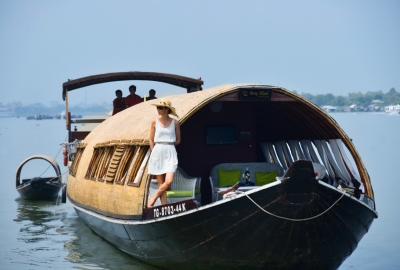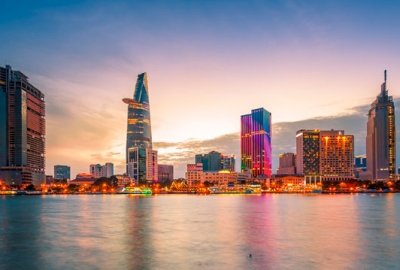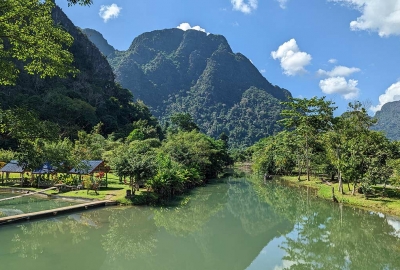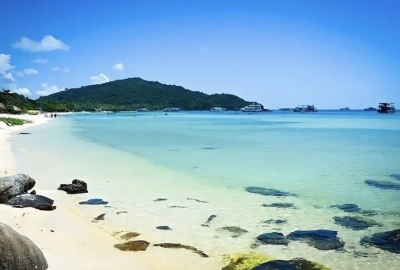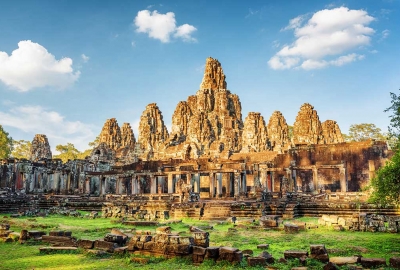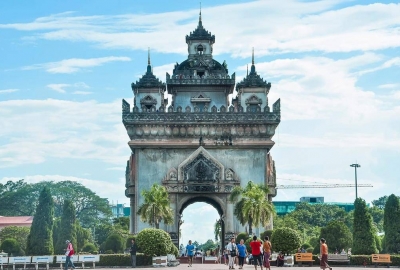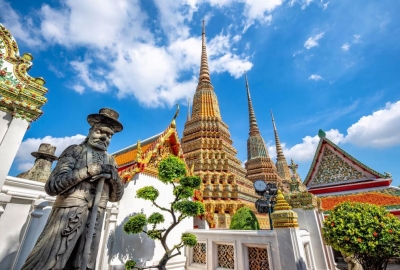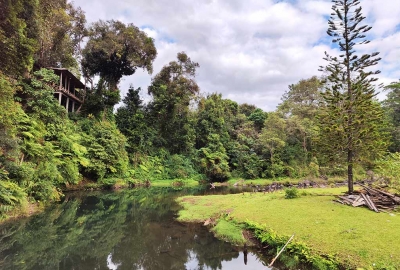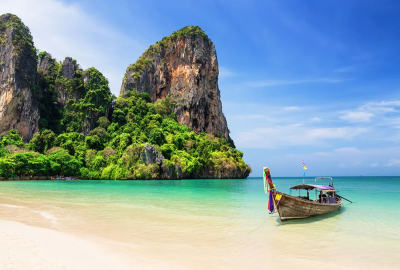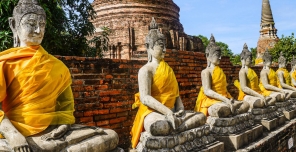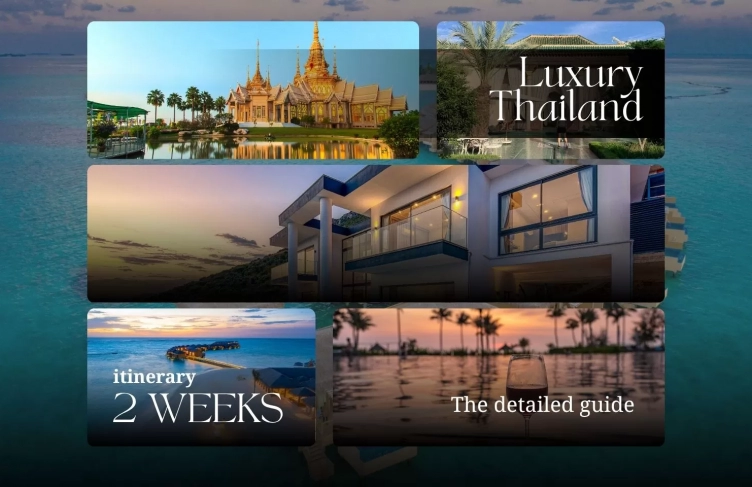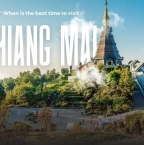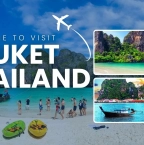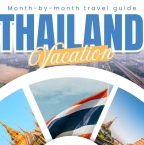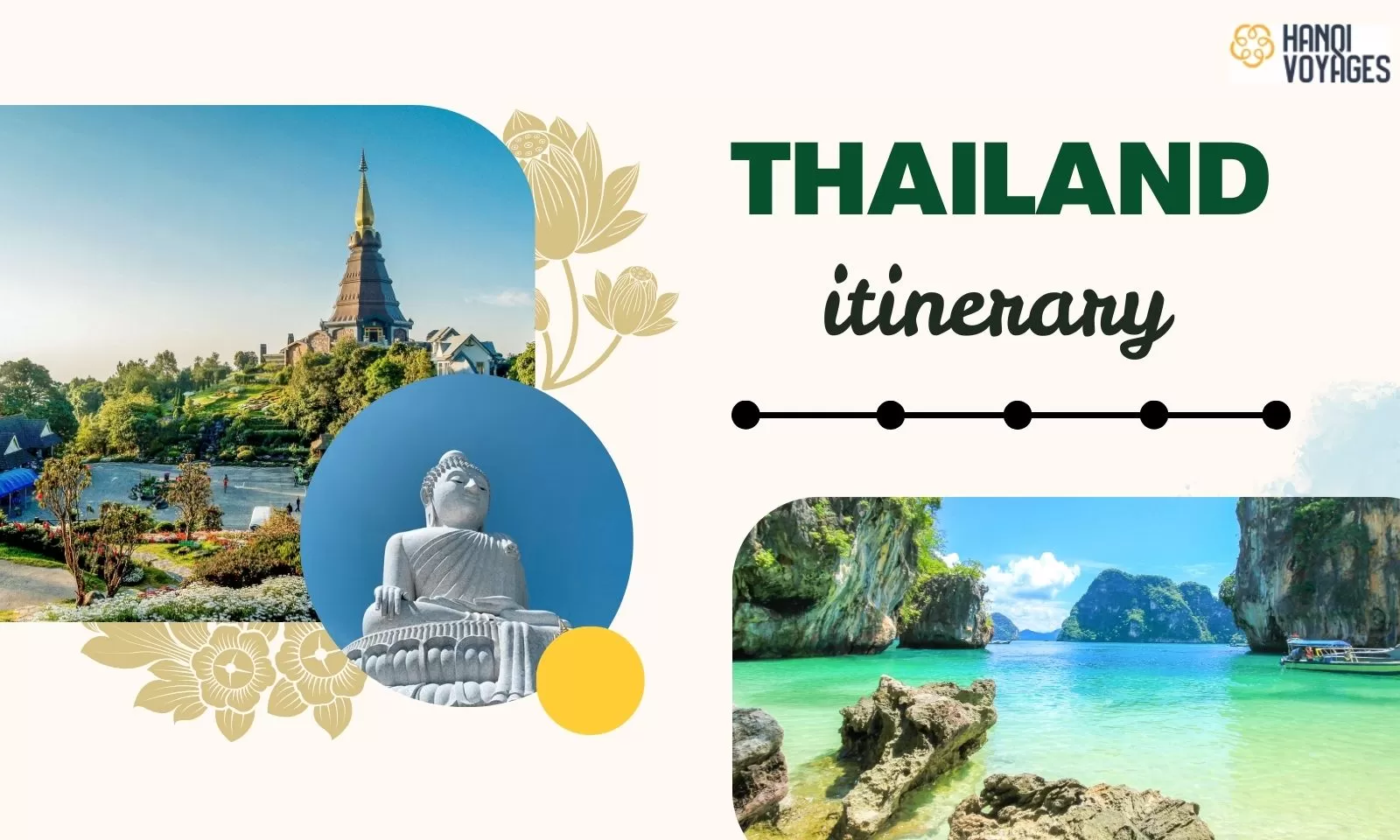
Thailand itinerary: How many days to explore?
Planning a Thailand itinerary but unsure how many days are enough? Discover ideal trip lengths, top destinations and travel tips to suit your plans. Whether you want a quick getaway or an extended adventure, find the best itinerary to enjoy your journey.

Thailand is a fascinating destination with countless experiences, ranging from lively cities and peaceful beaches to delicious cuisine and unique traditions. But how many days are enough to explore it fully? Some travelers prefer a short trip focusing on well-known attractions, while others extend their stay to explore at a slower pace. A well-planned Thailand itinerary helps you enjoy each moment without feeling rushed, ensuring a fulfilling journey. No matter your travel style, choosing the right trip length will make a difference.
Contact Hanoi Voyages for a tailor-made journey designed just for you!
Table of Contents
Best time to visit Thailand
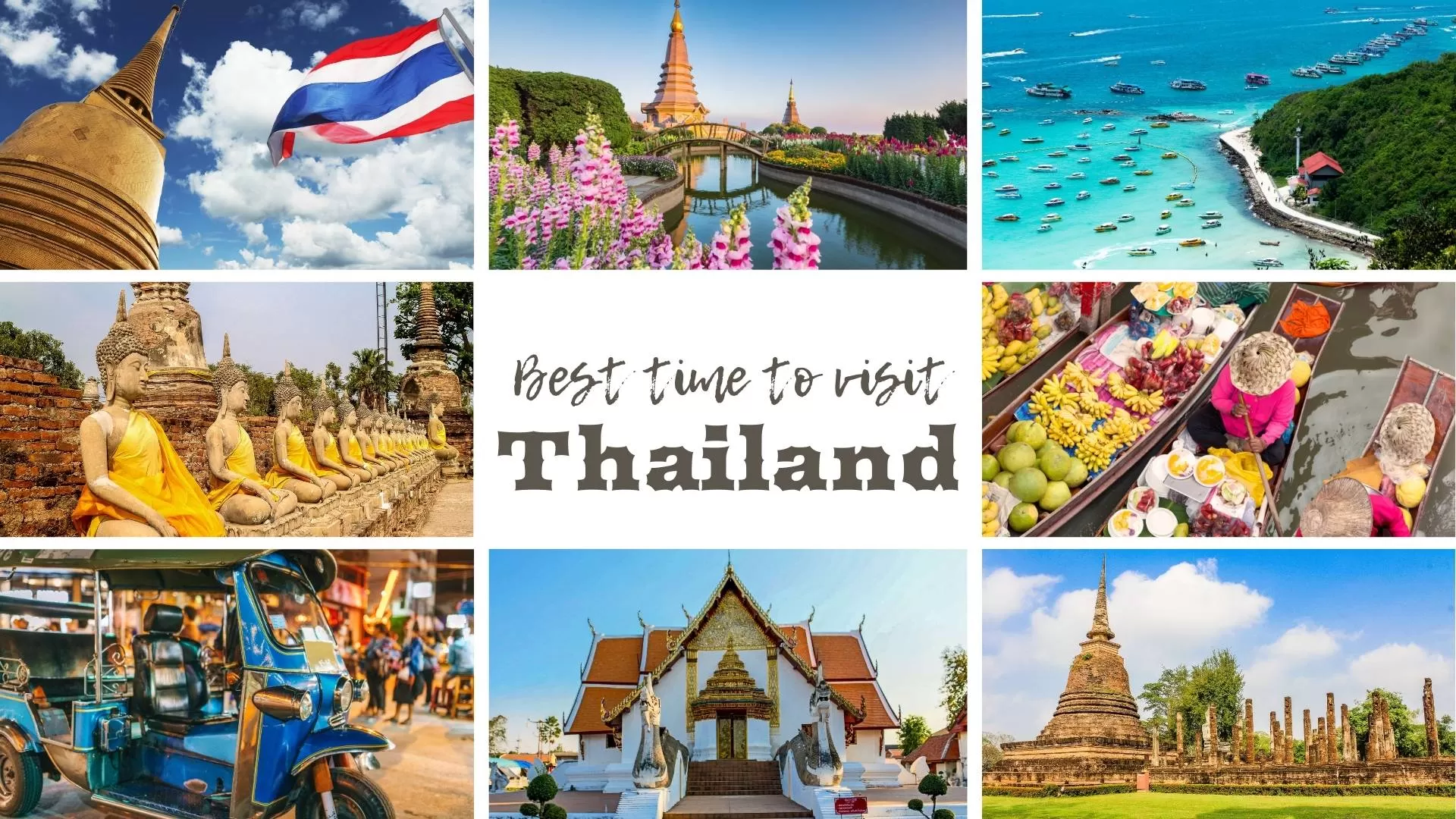
Thailand has three main seasons: cool, hot, and rainy. Choosing the right time to visit depends on your preferred activities and destinations.
Cool season (November – February): Many travelers consider this the best time to visit Thailand due to the pleasant temperatures and lower humidity. This is also the peak season, so expect higher prices and larger crowds.
Hot season (March – May): Temperatures can rise above 35°C, especially in Bangkok and central Thailand. This is a good time for beach vacations in places like Phuket and Krabi.
Rainy season (June – October): Heavy showers occur, but they are usually short and followed by sunshine. If you don’t mind occasional rain, this is a great time for budget-friendly travel.
If you’re planning outdoor activities, visiting during the cool season is ideal. However, if you want to avoid crowds, consider traveling in the shoulder months of May and October.
You can read more information: Best time to visit Thailand: A seasonal travel guide
How many days do you need to explore Thailand?

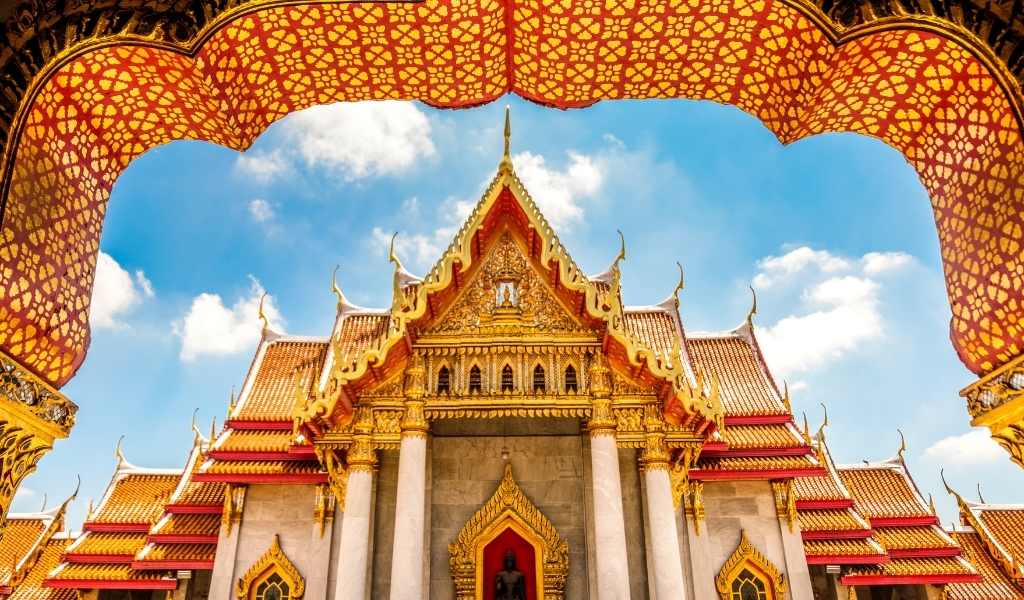
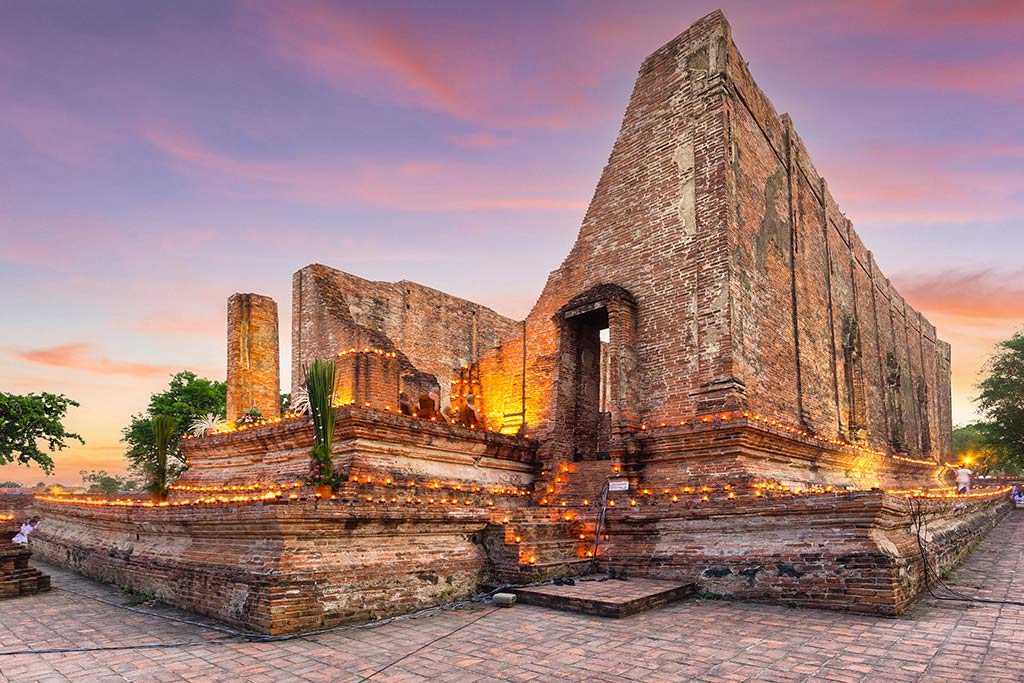


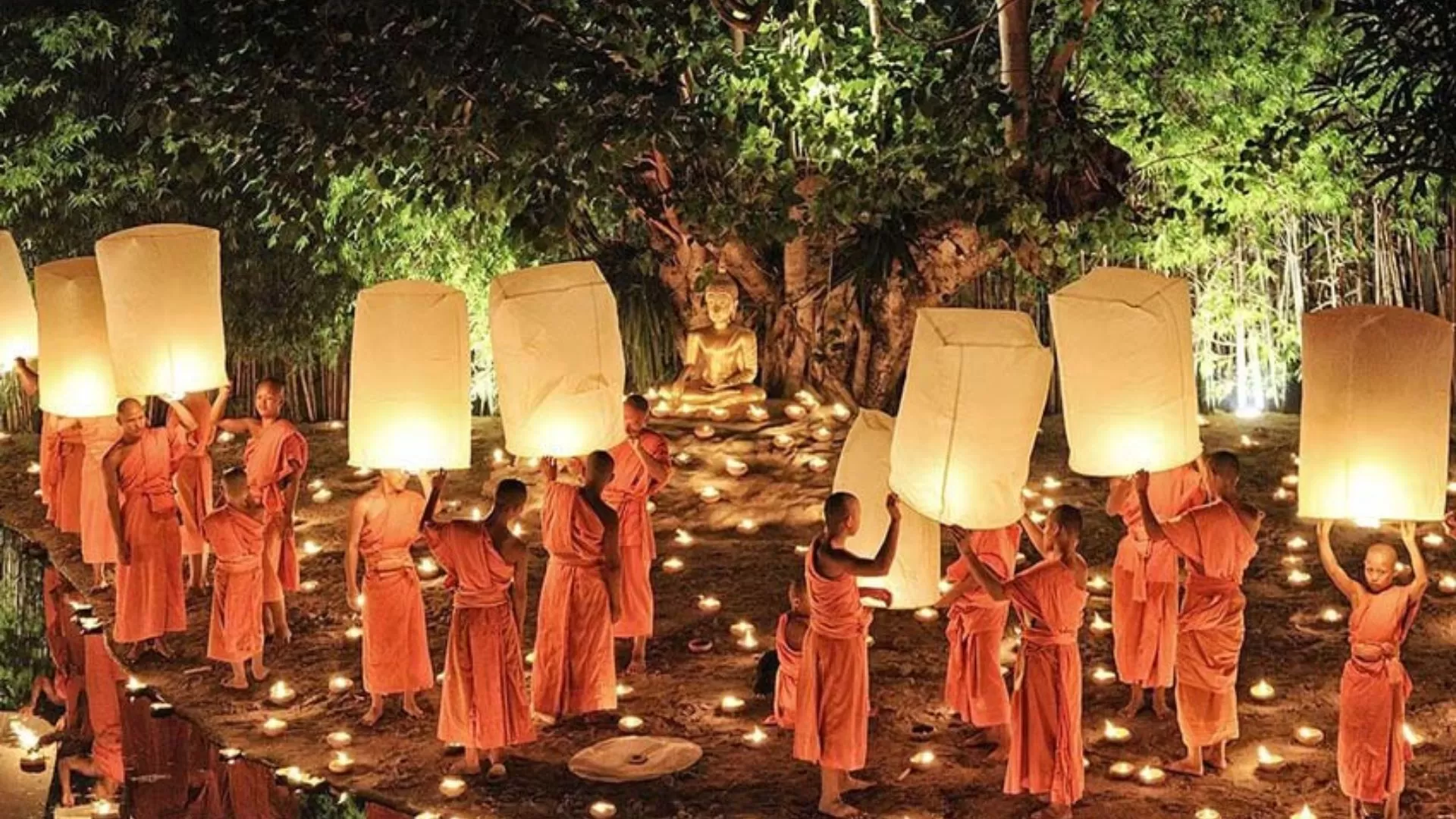
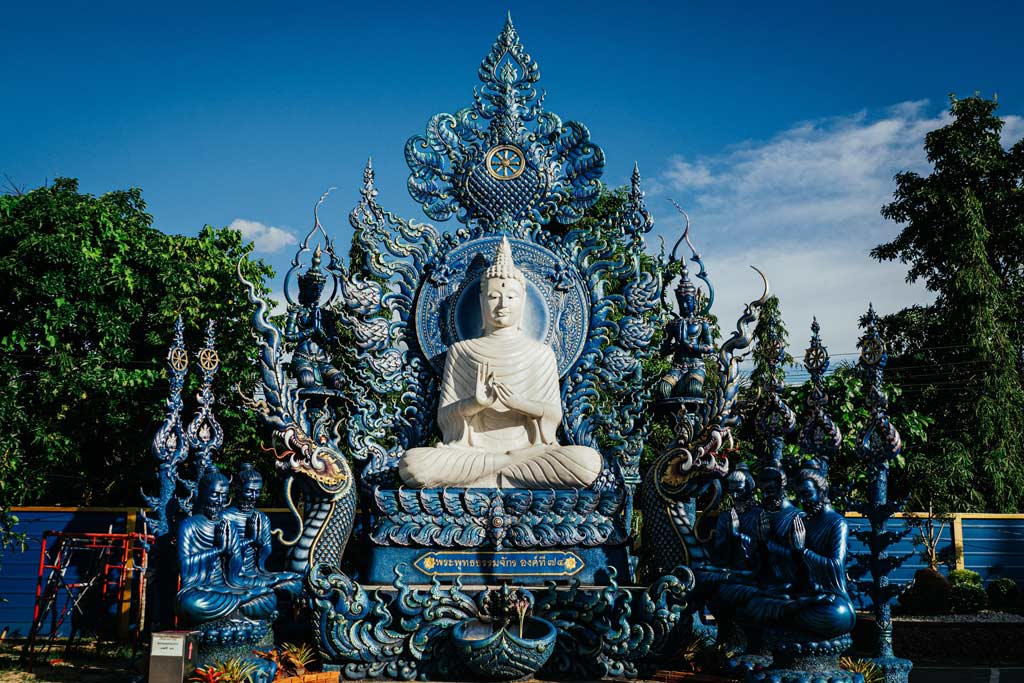
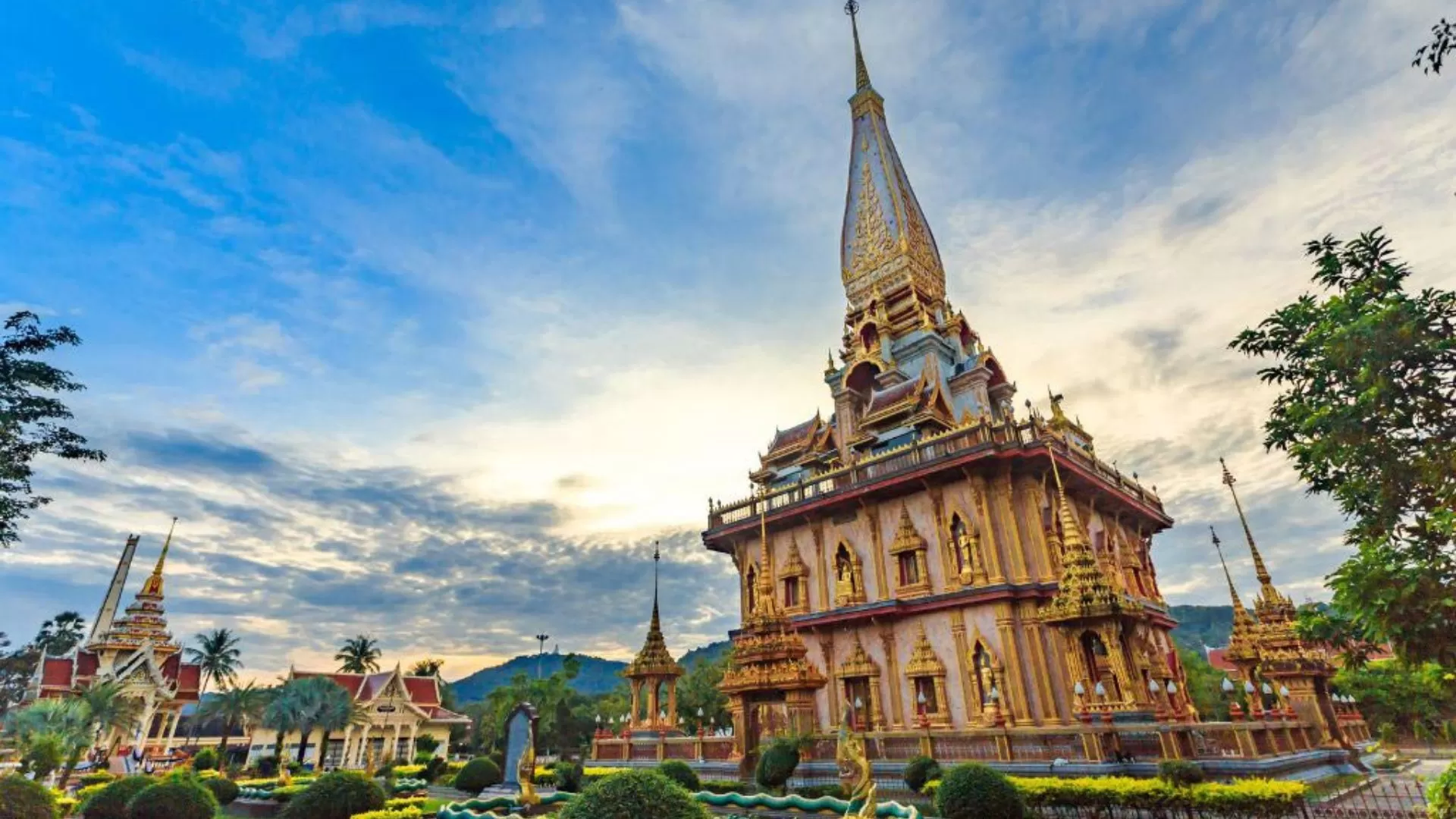
Deciding how many days to spend in Thailand depends on your interests and travel pace. The country offers a mix of bustling cities, historical landmarks, and scenic coastal areas, making it an exciting destination for different types of travelers. Whether you have a short vacation or a longer trip, planning your Thailand itinerary carefully ensures a fulfilling experience.
1 week in Thailand
With about a week in Thailand, you can explore its most iconic destinations without feeling rushed. Start your journey in Bangkok, where you can visit grand palaces, temples, and bustling markets. Then, head to Ayutthaya or Chiang Mai to discover historical sites and experience local life. If you want to enjoy Thailand’s coastal scenery, spend your final days relaxing on an island or a southern beach. This itinerary offers a balance of urban energy and peaceful nature. You can plan your trip to Thailand for around 7 to 10 days to make the most of your experience.
With our Tour Thailand 1 Week, you’ll experience the best of Thailand in just seven days – from bustling Bangkok and cultural Chiang Mai to stunning beaches that promise the perfect escape. Let's choose a trip and plan this together!
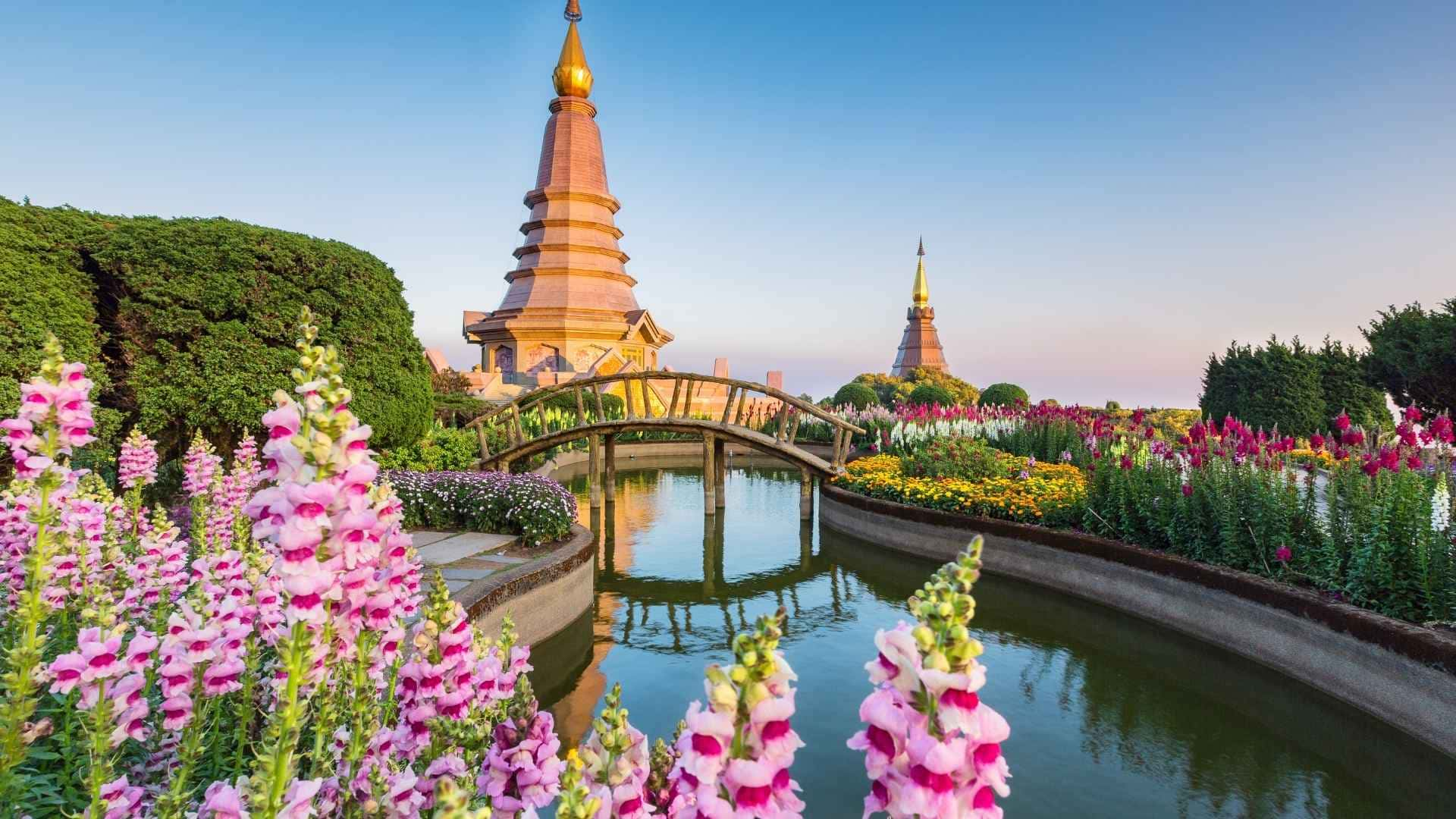 |  | 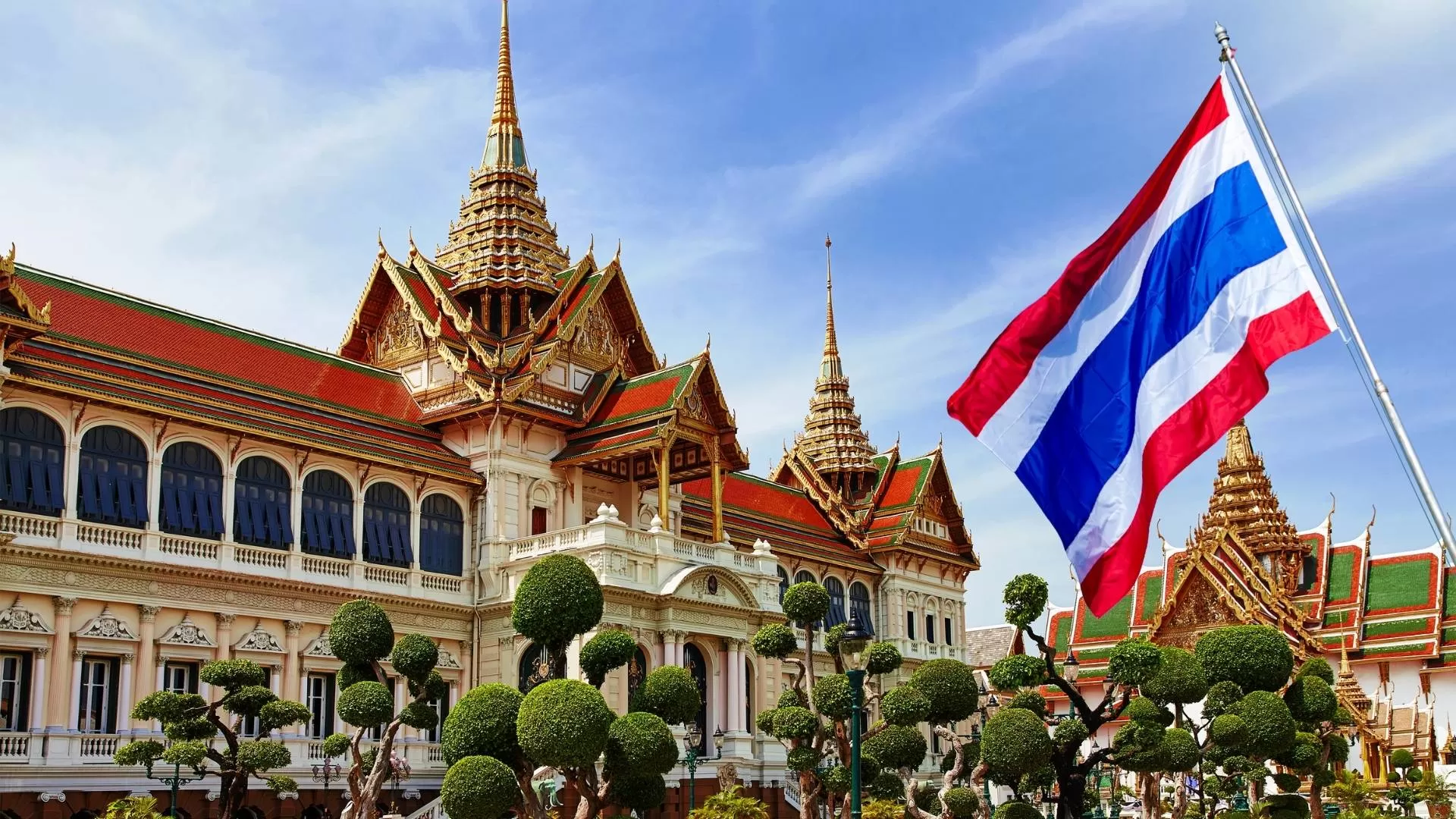 |
Between mountain trails and jungle peace, this tour offers intimate glimpses of ethnic traditions and timeless Thai beauty. | Explore stunning beaches, tropical islands, and local culture in a perfect mix of adventure and relaxation | Discover cultural treasures, historic sites, and vibrant local life from Bangkok to ancient capitals and scenic countryside. |
2 weeks in Thailand
Two weeks give you the perfect amount of time to see both popular attractions and lesser-known areas. After exploring Bangkok, you can travel north to Chiang Mai or Chiang Rai, where you’ll find stunning temples and a rich cultural heritage. Visiting places like Sukhothai or Kanchanaburi can add a deeper historical perspective to your trip. End your journey by unwinding on Thailand’s famous beaches or islands, creating a well-rounded travel experience. You can explore Thailand for about 14 to 18 days to fully enjoy its diverse landscapes and rich heritage.
A Thailand 2 weeks journey offers the perfect balance of discovery and relaxation—explore majestic temples, savor authentic flavors, and unwind on pristine tropical shores. CHOOSE AN IDEA and let's plan a trip together!
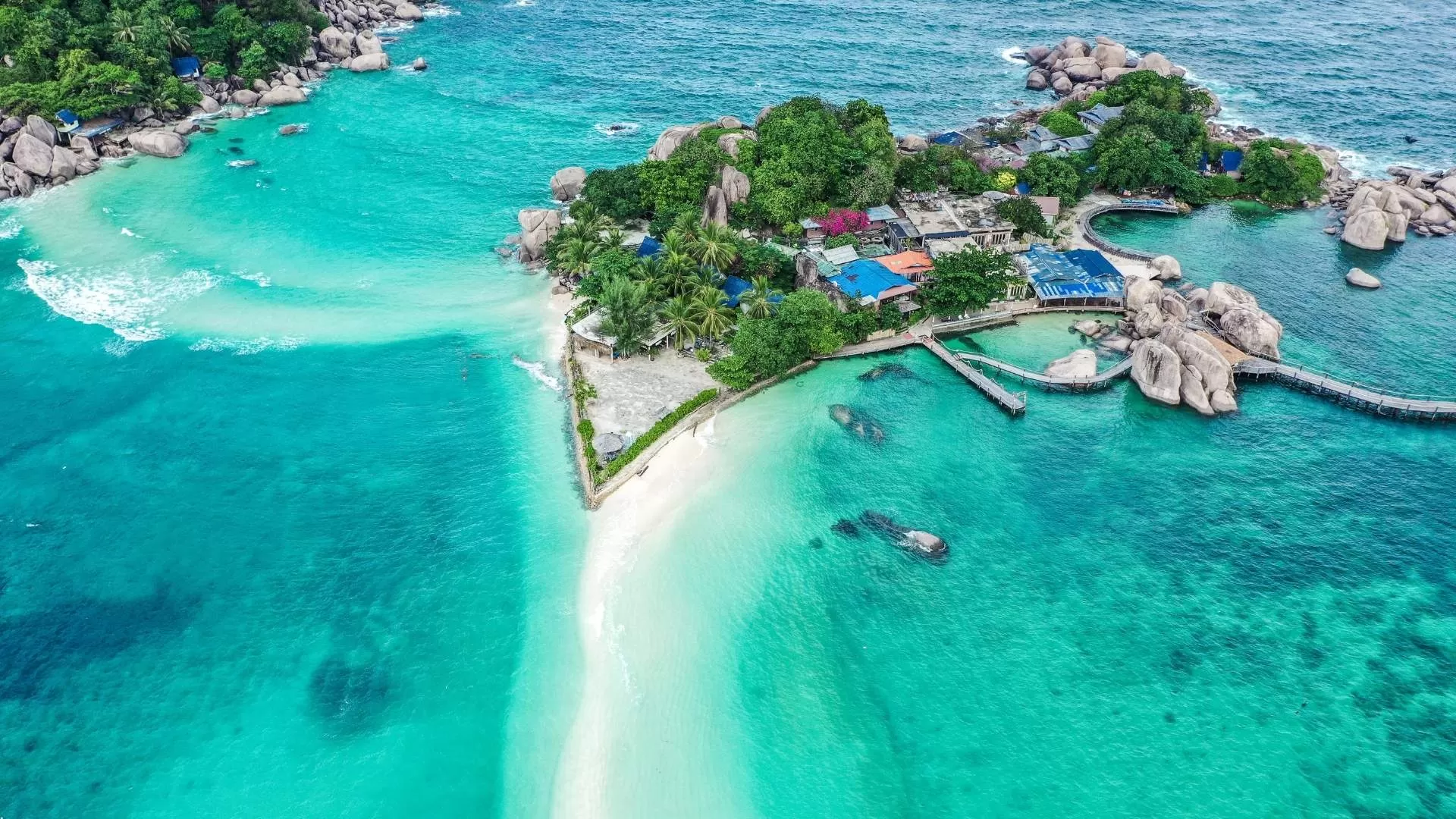 | 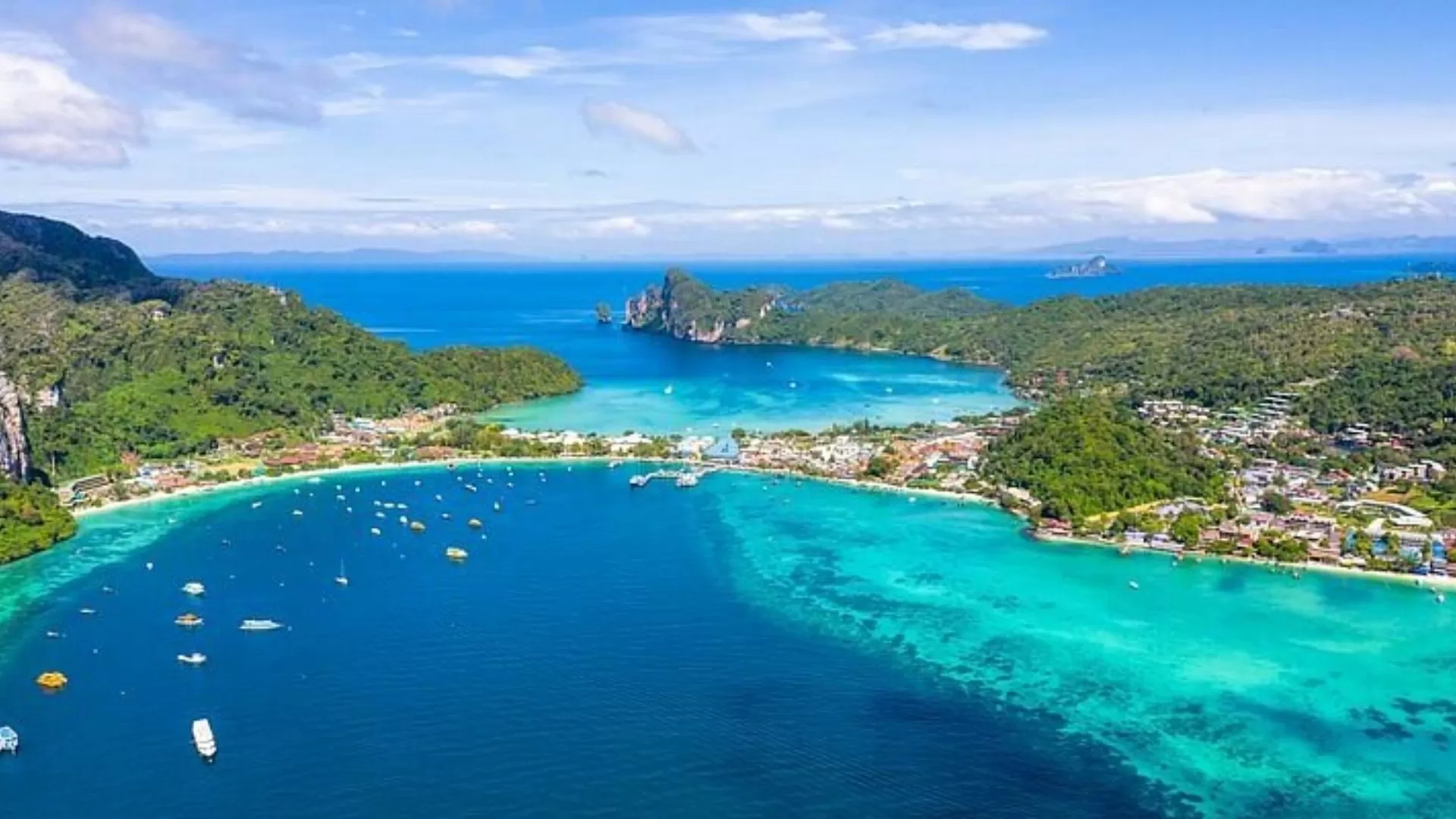 | 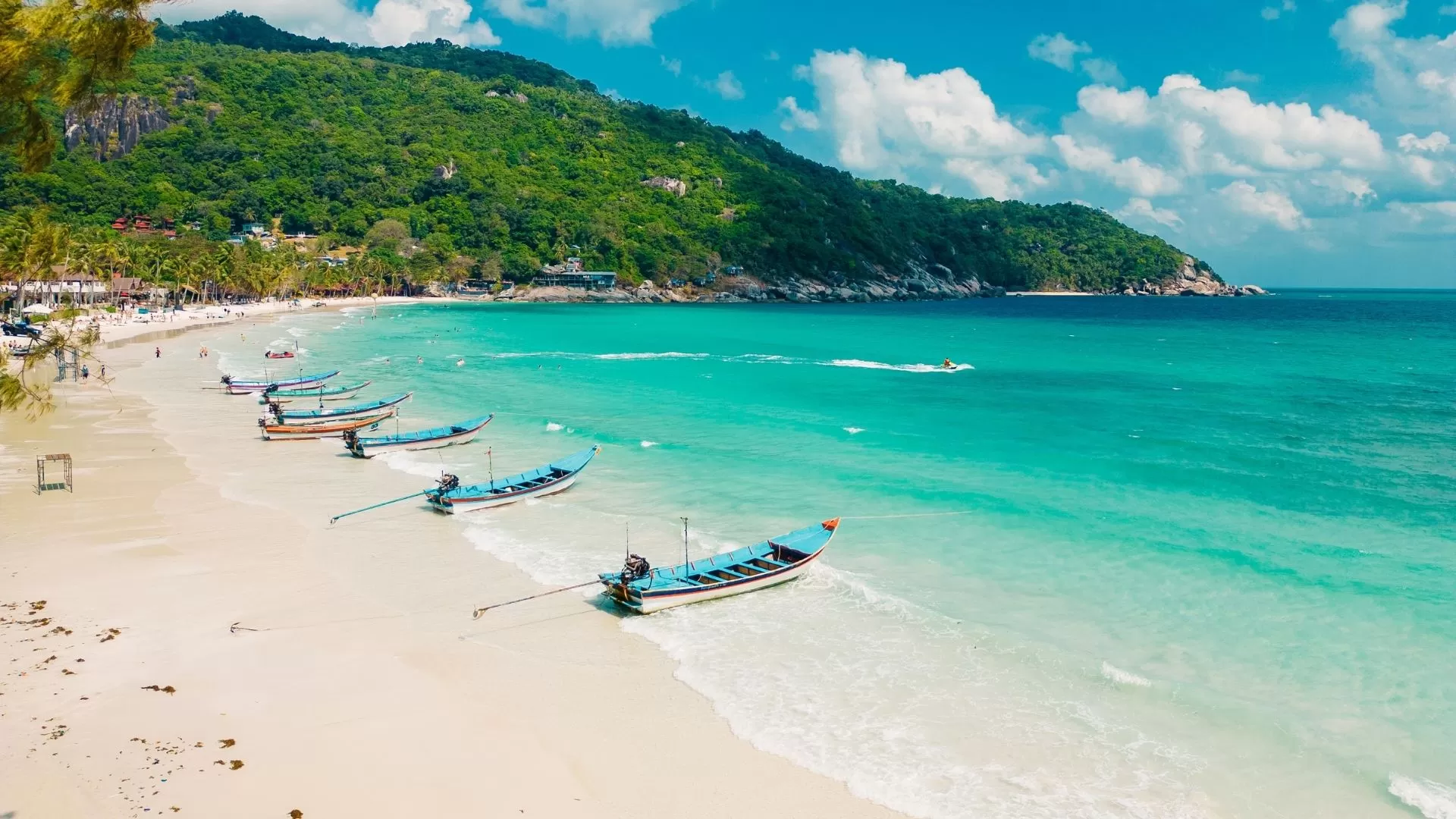 |
Travel across Thailand with authentic encounters nature walks and restful beach days | Incredible Thailand tour 16 Days Explore Bangkok - the legendary Asian capital, Ayutthaya - the ancient city and many treasures! | Northern Thailand tour from Ayutthaya, discovering the magic of the North with its landscapes, ... |
3 weeks in Thailand
Within three weeks, you can enjoy Thailand at a more relaxed pace and explore a wider variety of destinations. Beyond the major cities, you can venture into rural areas, national parks, or lesser-known islands. Activities like trekking, visiting traditional craft villages, or attending local festivals will make your trip even more enriching. This itinerary is ideal for travelers who want a deeper understanding of Thailand rather than just visiting the main tourist hotspots.
Have 3 weeks in Thailand? Let us guide you through a journey of golden temples, vibrant markets, lush jungles and pristine beaches for a memorable trip
 |  | 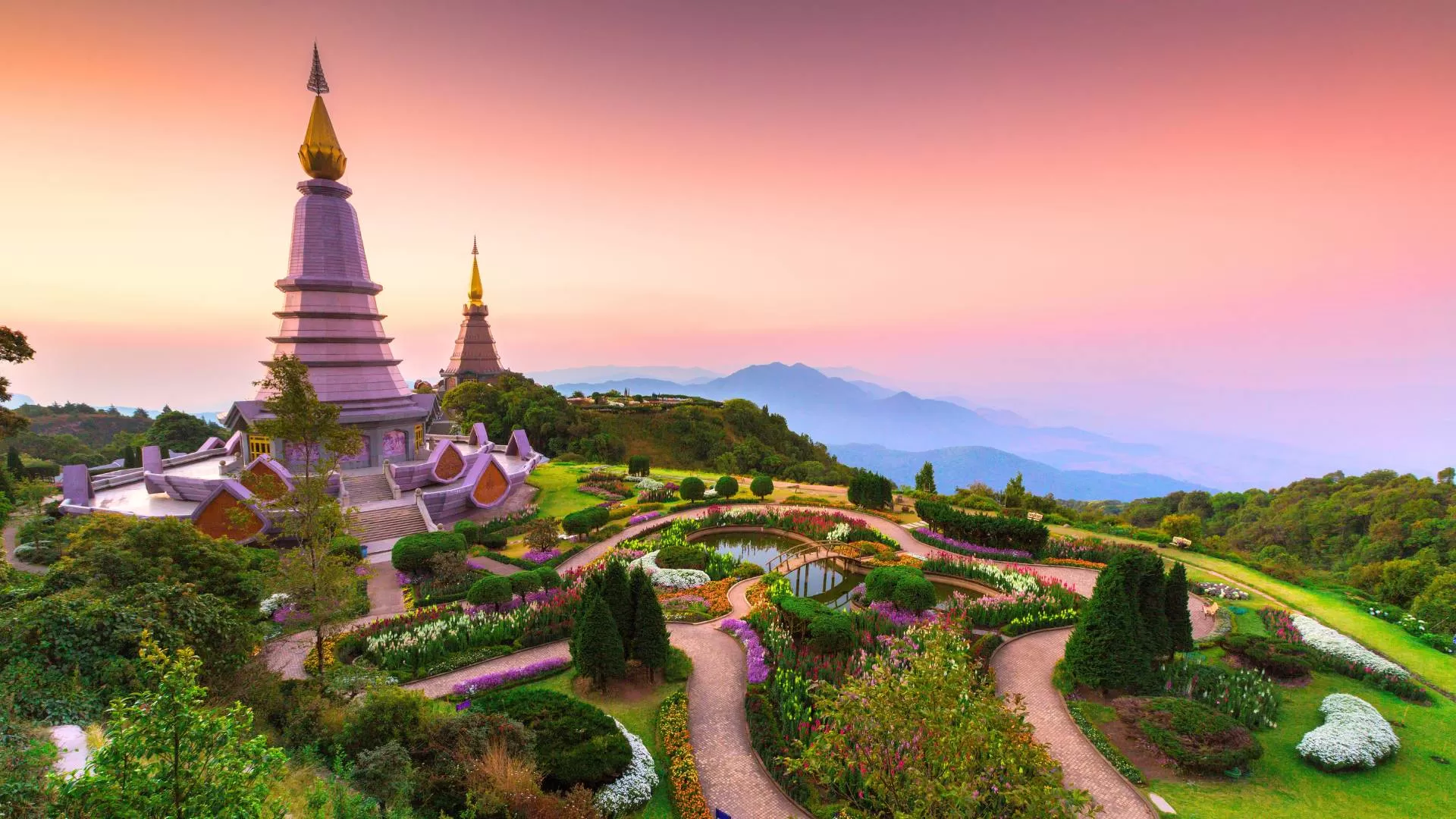 |
Exploring the diversity of culture, natural wonders and ending with stunning beach | Cultural treasures peaceful beaches and outdoor fun activities await for your whole family | Offering a first encounter with the Kingdom of Siam, a journey rich in history and culture |
1 month in Thailand
Spending a month in Thailand allows you to travel at a leisurely pace, exploring different regions without feeling rushed. You can combine visits to major cities, historical sites, mountainous regions, and picturesque islands. This is also a great opportunity to engage with local culture, whether through cooking classes, meditation retreats, or discovering hidden markets. If you enjoy slow travel and want to experience Thailand in a meaningful way, a one-month journey is the perfect choice.
Embark on our Tour Thailand 1 Month to truly immerse yourself in the country’s rich culture, golden temples, vibrant cities, and idyllic islands – the ultimate journey to experience Thailand at its fullest
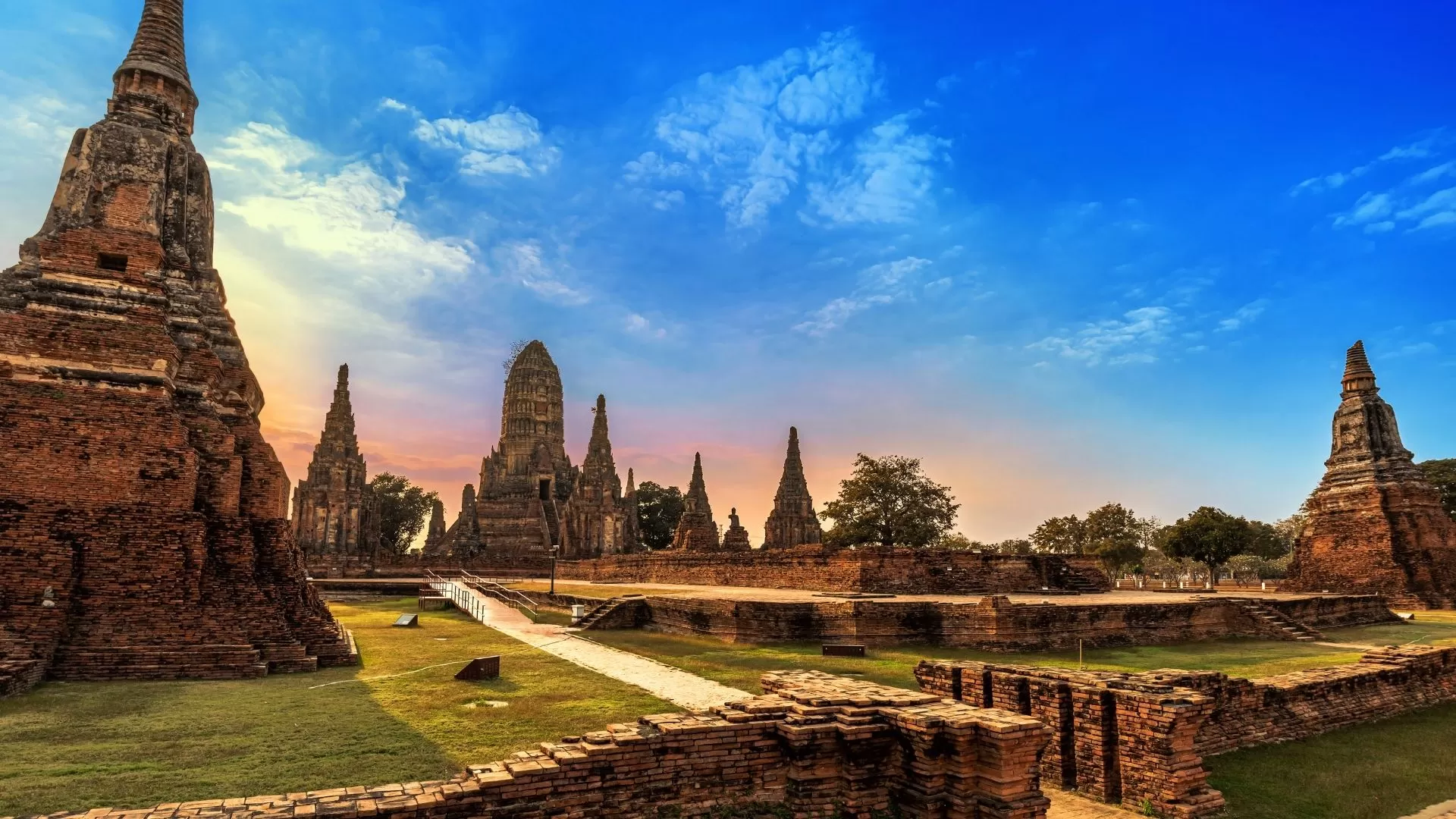 | 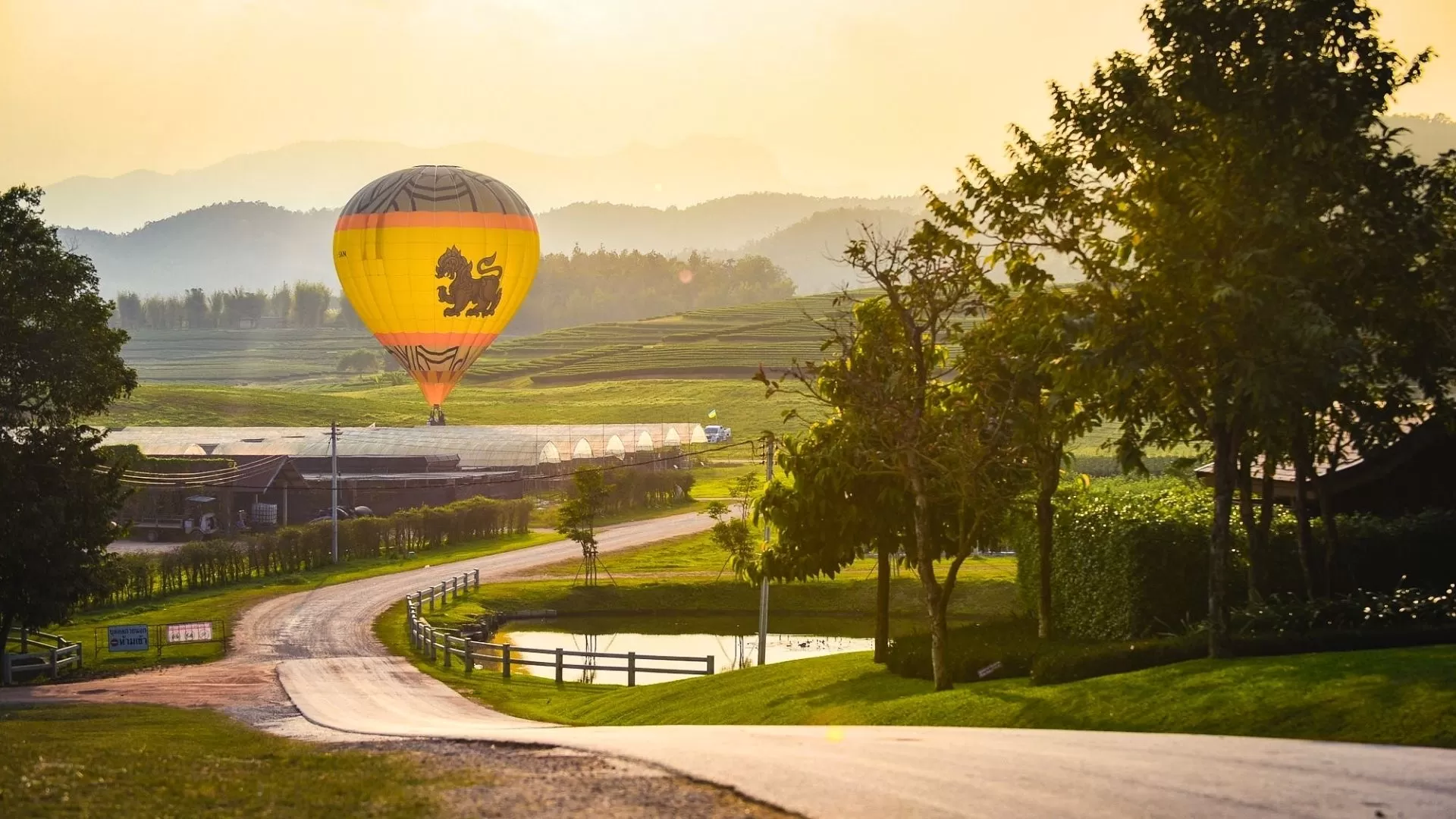 |  |
1 Month in Thailand between culture and beaches 1 month in Thailand exploring golden temples, lush jungles and idyllic beaches for a perfect blend of culture and relaxation. | From Sacred Sites to Seaside Dreams in Thailand A one-month journey through Thailand: from mountain treks and vibrant city explorations to peaceful beachside escapes | Thailand 1 month exploration from North to Islands A full immersion into Thailand’s treasures, from lush forests and cultural heartlands to quiet bays and white sand beaches. |
Ultimately, the ideal trip length depends on how much you want to see and do. A shorter stay covers the main highlights, while a longer journey allows for deeper exploration. No matter how many days you have, a well-structured Thailand itinerary ensures you enjoy your trip.
The best itineraries for an ideal trip to Thailand
For those looking for a well-rounded experience, a 14-day journey provides the perfect balance between cultural landmarks, natural landscapes, and local life. One excellent option is the Paradise Trip from Bangkok to Chiang Mai 14 Days, which offers a thoughtfully planned route covering some of Thailand’s most remarkable destinations.
This Thailand itinerary starts in Bangkok, visitors explore royal temples, lively streets, and enjoy a dinner cruise along the river to admire the city’s illuminated monuments. The trip then moves to Kanchanaburi, known for the historic Bridge on the River Kwai and the natural beauty of Erawan National Park. In Ayutthaya and Sukhothai, travelers discover the ruins of Thailand’s ancient capitals. A stop in Lampang offers a rare experience of horse-drawn carriage rides, while Chiang Rai provides the opportunity to meet the Padong Karen tribes. The journey concludes in Chiang Mai, often called the "Rose of the North," where visitors explore centuries-old temples and take in the city’s unique charm.
|
|
You can read more: Paradise trip from Bangkok to Chiang Mai 14 days
Top attractions in Thailand you shouldn’t miss
A well-planned Thailand itinerary covers diverse destinations, combining city life, island retreats, and historical sites. From Bangkok’s busy streets to Phuket’s beaches and Ayutthaya’s ancient ruins, each region offers unique experiences.
Bangkok
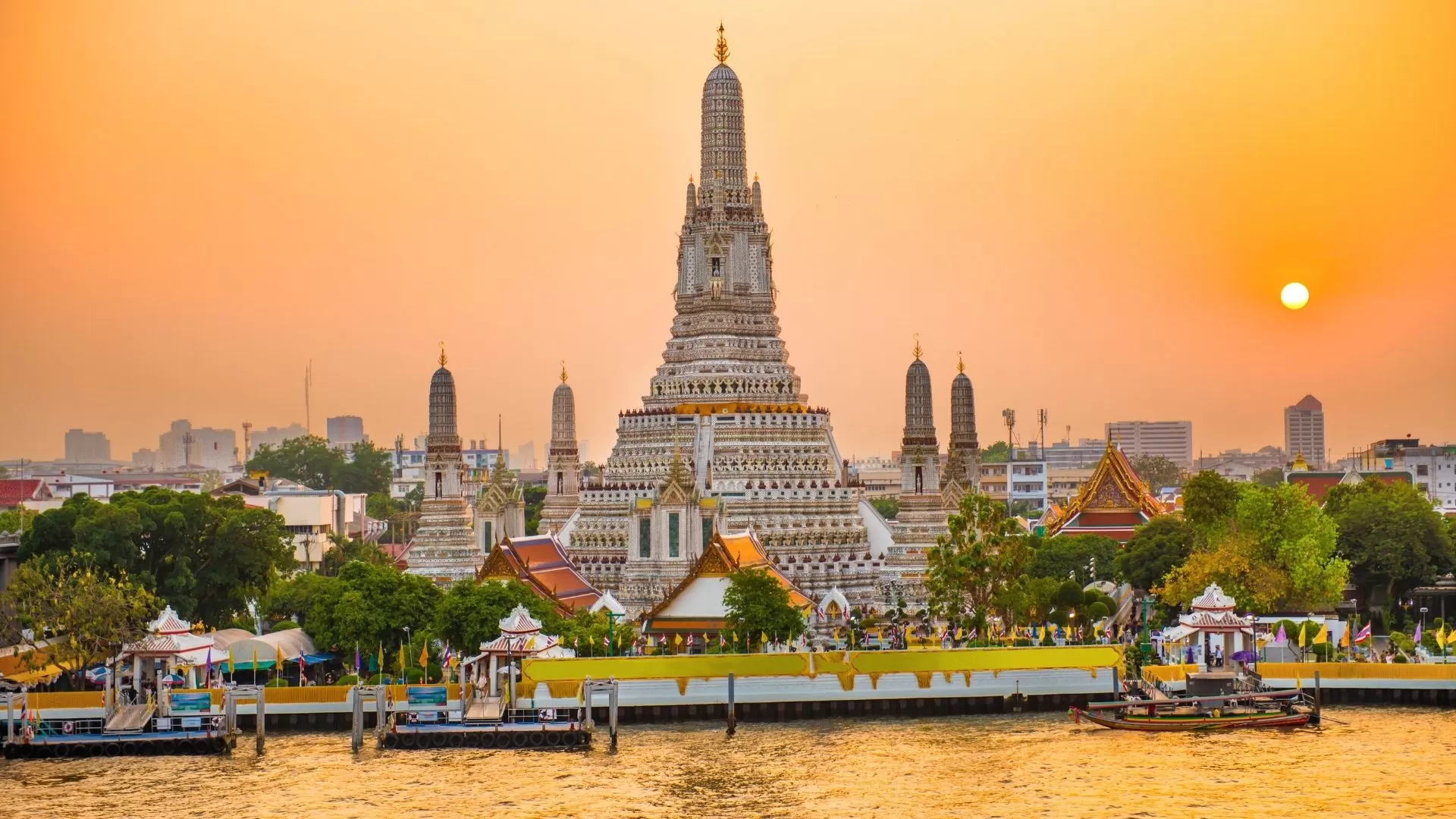
Bangkok, Thailand’s vibrant capital, is a city of contrasts where glittering temples, bustling markets, and modern skyscrapers come together to create an unforgettable travel experience.
What to experience in Bangkok?
Visit the Grand Palace and the Emerald Buddha
Admire the riverside beauty of Wat Arun
Shop at the vast Chatuchak Weekend Market
Taste street food along Yaowarat Road (Chinatown)
Experience the nightlife on Khao San Road
Enjoy city views from rooftop bars on Sukhumvit Road
Chiang Mai

Nestled in northern Thailand, Chiang Mai is a cultural gem and a highlight in any two weeks in Thailand Vietnam itinerary, especially during the magical Yi Peng Lantern Festival, when thousands of lanterns brighten the sky.
What to experience in Chiang Mai?
Visit the sacred Wat Phra That Doi Suthep with panoramic mountain views
Go trekking in Doi Inthanon National Park, home to waterfalls, lush forests, and Thailand’s highest peak
Stroll through the Sunday Night Market and Night Bazaar for local crafts and street food
Join an ethical elephant sanctuary visit to support wildlife conservation
Immerse in traditional Lanna culture through cooking classes and handicraft villages
You can also refer: Thailand lantern festivals 2025: Yi Peng and Loy Krathong
Chiang Rai
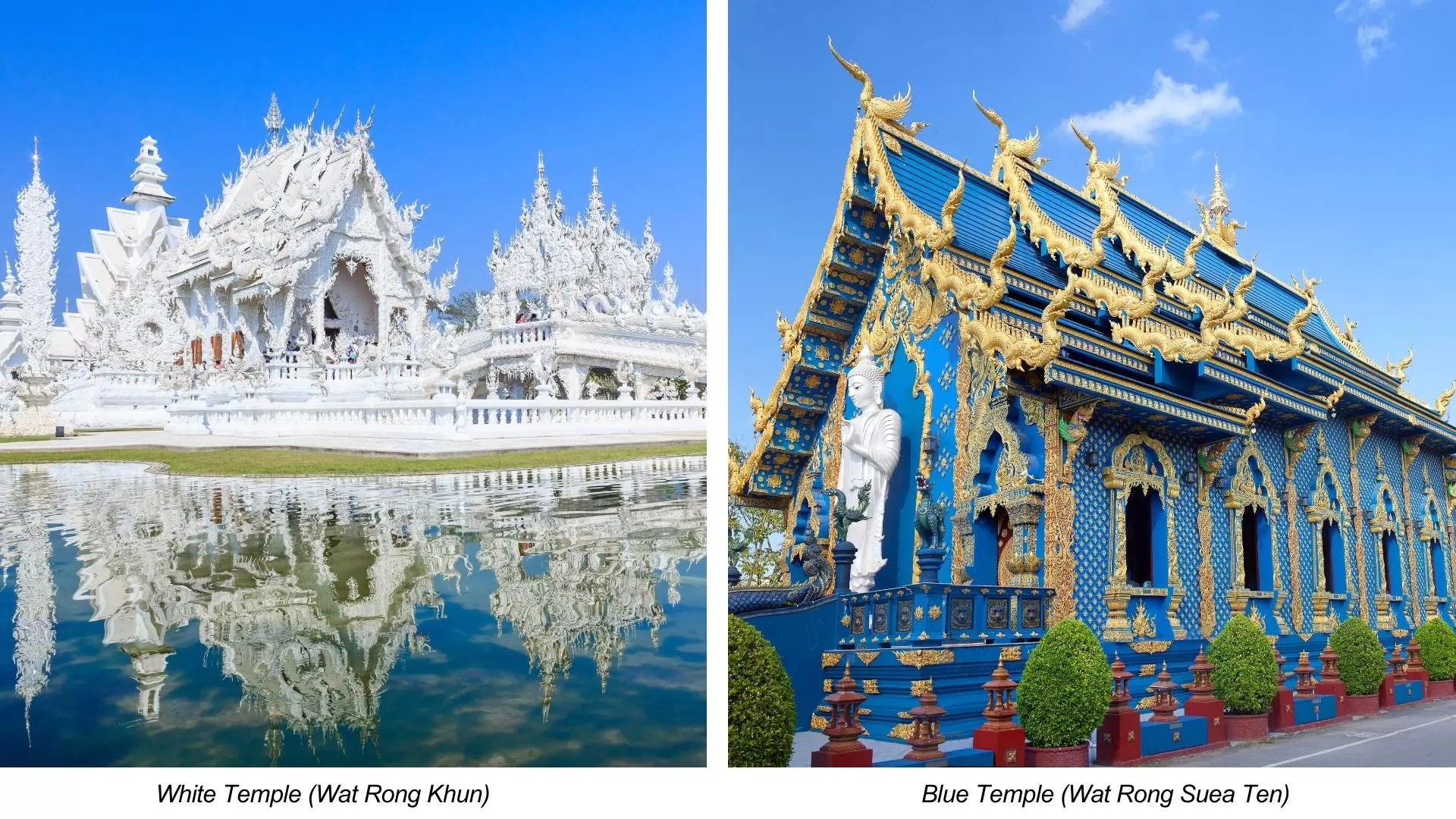
Chiang Rai, nestled in northern Thailand, is a peaceful yet captivating destination, famous for its artistic temples and unique cultural landmarks.
What to experience in Chiang Rai?
Marvel at the intricate White Temple (Wat Rong Khun)
Visit the striking Blue Temple (Wat Rong Suea Ten)
Explore the historic Golden Triangle, where Thailand, Laos, and Myanmar meet
Hike to Phu Chi Fa for breathtaking sunrise views over misty valleys
Phuket
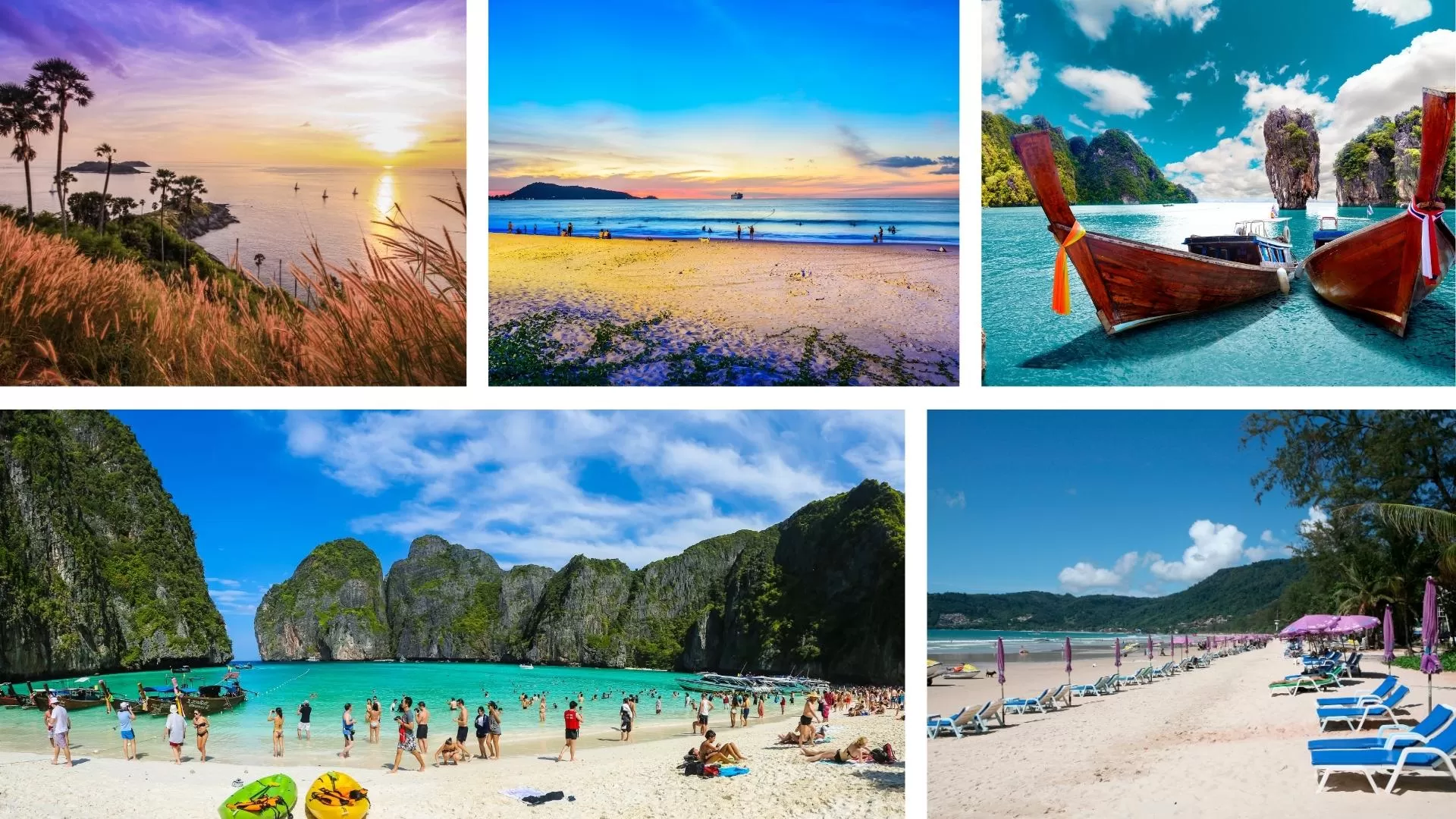
Phuket, Thailand’s largest island, is a tropical paradise that combines stunning beaches, cultural landmarks, and vibrant nightlife, making it a must-visit stop in any Thailand journey.
What to experience in Phuket?
Relax or enjoy water sports at Patong Beach
Unwind at the more peaceful Kata and Karon beaches
Visit the iconic Big Buddha overlooking the island
Take a boat tour to the Phi Phi Islands with crystal-clear waters and limestone cliffs
Experience Phuket’s nightlife with beach clubs, bars, and entertainment venues
Learn more: Top 7 Thailand islands for an unforgettable vacation
Ayutthaya
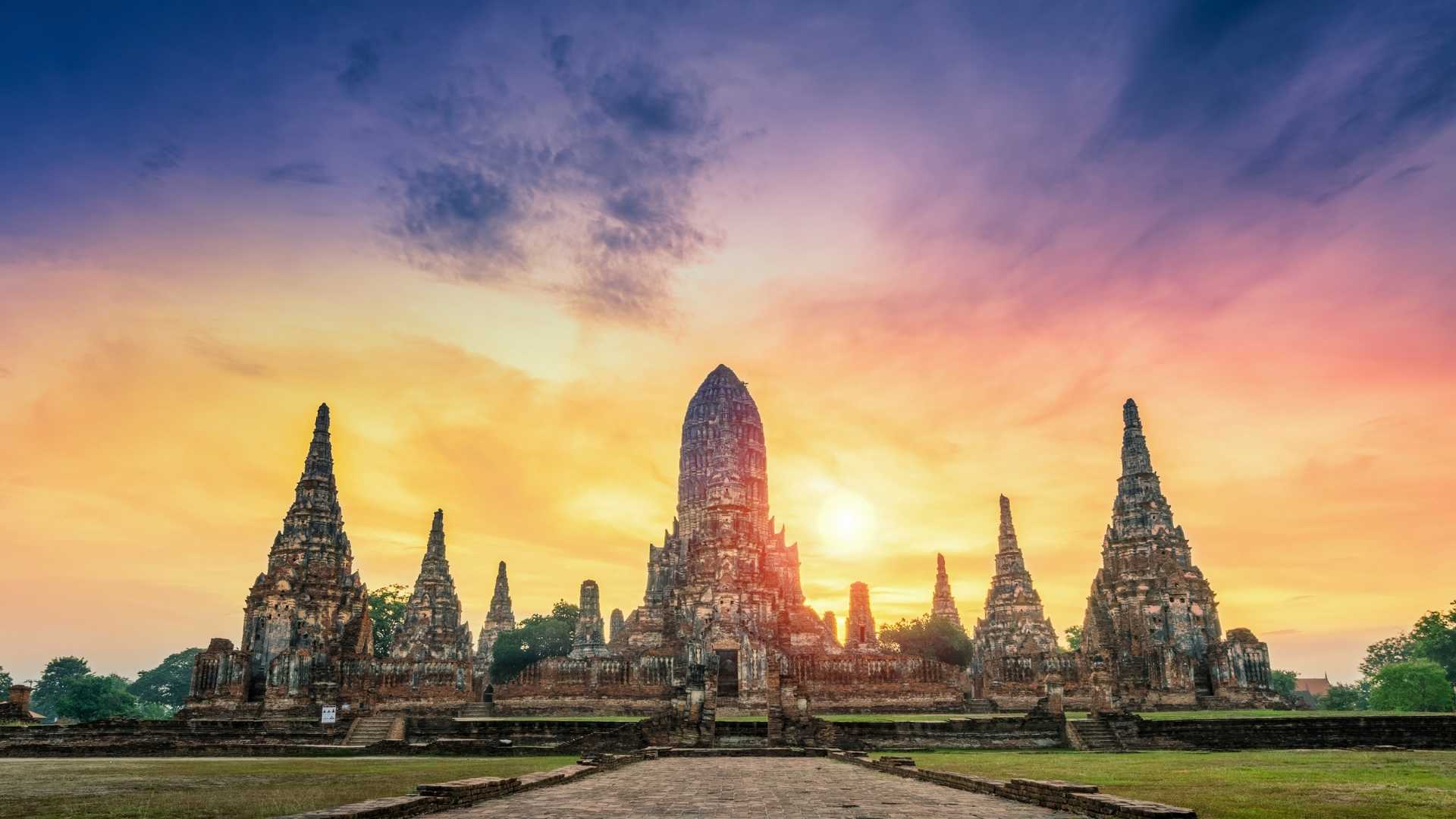
Just a short trip from Bangkok, Ayutthaya is a UNESCO World Heritage Site that showcases the grandeur of Thailand’s former capital and its timeless temple ruins.
What to experience in Ayutthaya?
See the famous Buddha head entwined in tree roots at Wat Mahathat
Visit the royal temple Wat Phra Si Sanphet
Admire the riverside beauty of Wat Chaiwatthanaram
Explore the Ayutthaya Historical Park by bicycle or boat tour
Learn about the city’s past at the Ayutthaya Historical Study Centre
You can also refer: Top 7 historical sites in Ayutthaya not to be missed
Essential tips for planning your Thailand itinerary
Planning ahead can make your trip more enjoyable and well-organized. From understanding local customs to managing expenses and choosing the best transportation, these Thailand travel tips will help you navigate the country with ease. Exploring different destinations becomes much easier when you have the right information in advance.
Visa requirements
Thailand allows visa-free entry for many nationalities, with stays ranging from 15 to 45 days. Travelers planning to stay longer should apply for a visa in advance. Visa policies may change, so checking official government websites before departure is recommended to ensure compliance with the latest requirements.
Choosing the best transportation options in Thailand
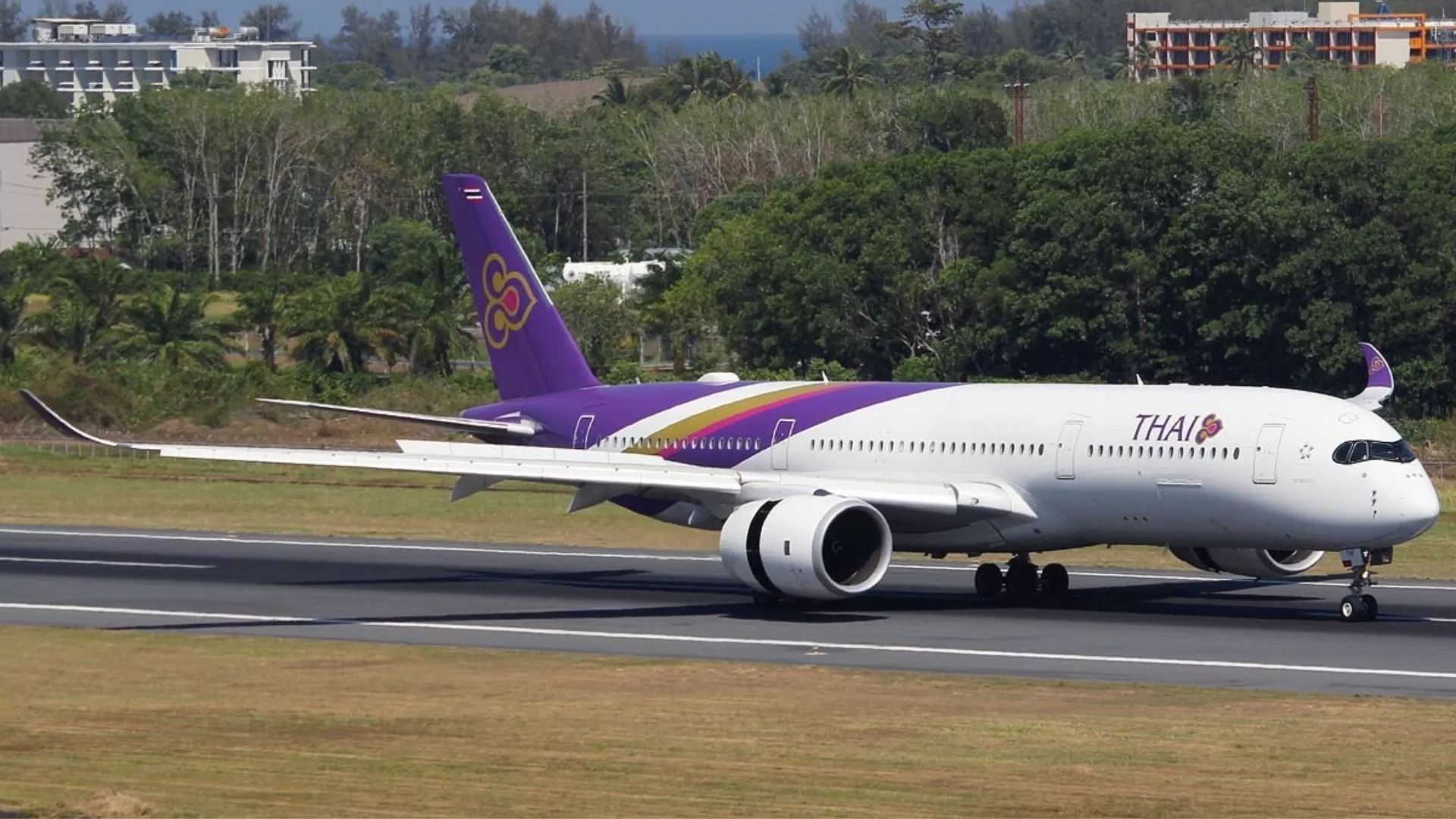 |  | 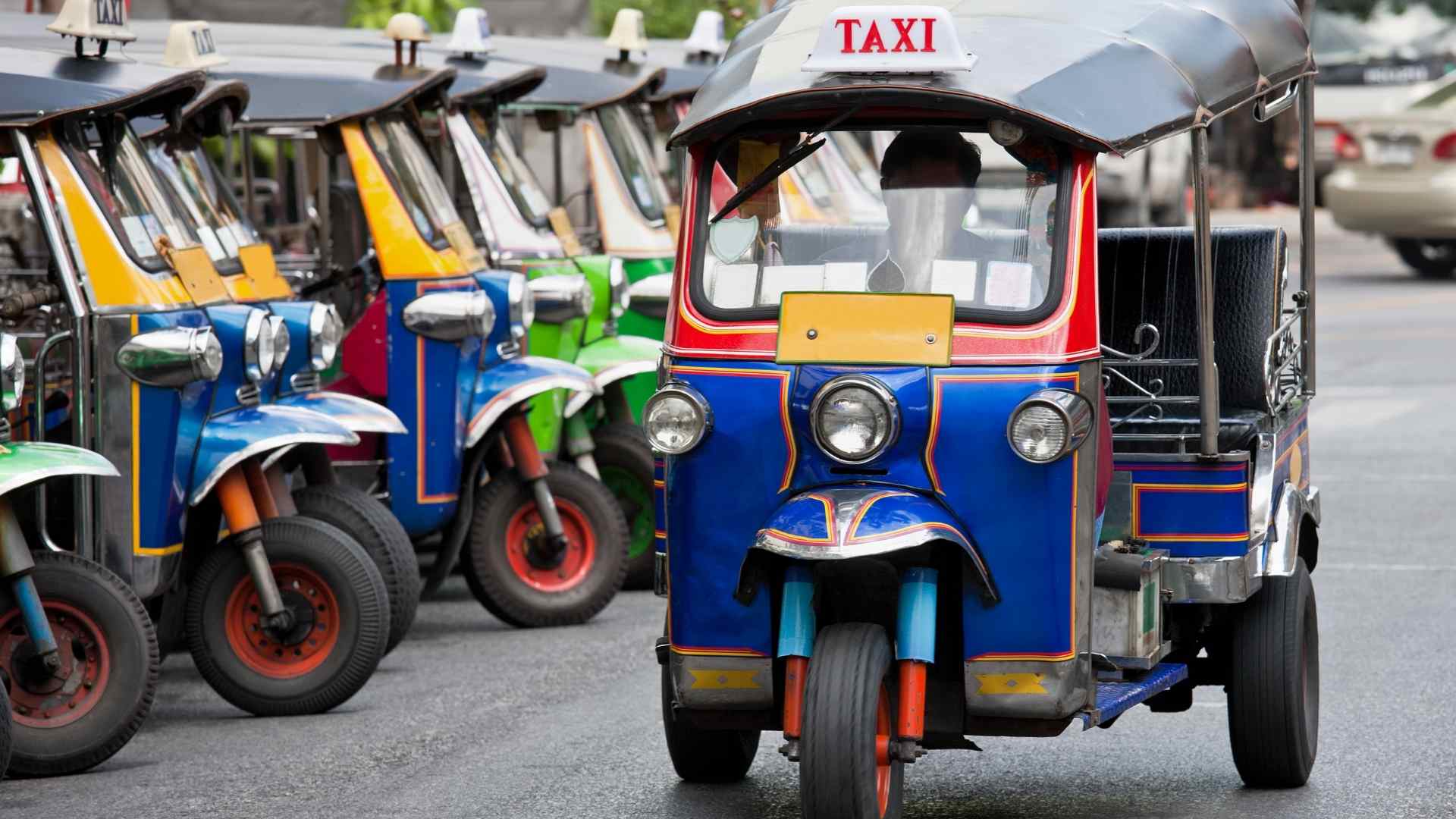 |
Thailand has a well-connected transportation network that makes traveling within the country convenient.
Domestic flights are the fastest option for long distances, especially between major cities.
Trains offer a budget-friendly and scenic way to travel, particularly for routes like Bangkok to Chiang Mai.
Buses and minivans provide affordable transport for shorter distances.
In cities, tuk-tuks and taxis are widely available, though it is advisable to negotiate fares in advance to avoid overpaying.
Where to stay in Thailand: Accommodation for every budget
This Thailand travel guide highlights the wide range of accommodations available across the country. Budget-conscious travelers can find affordable hotels in central locations, providing basic amenities at reasonable prices. Mid-range options include boutique hotels and well-rated resorts that offer more comfort and modern facilities. For those seeking luxury, high-end resorts in Phuket, Koh Samui, and Bangkok provide premium services, spacious rooms, and scenic views.
Recommend some best hotels in Thailand for each travelers:
3-star hotels in Thailand: Baan Thai House (Ayutthaya), Phi Phi River Beach Resort (Phuket), Royal River Kwai Resort (Kanchanaburi), Khao Sok Boutique Hideway Resort (Khao Sok),...
4-star hotels in Thailand: Le D'Tel Bangkok (Bangkok),Kantary hills Chiang Mai (Chiang Mai), Centara Ao Nang Resort & Spa Krabi, Samui Resotel Beach Resort (Koh Samui), Phowadol Resort and Spa (Chiang Rai),...
5-star hotels in Thailand: Anantara Lawana Koh Samui Resort, Anantara Chiang Mai Resort, Kimpton Maa-Lai Bangkok, The riverie Katathary, The Nai Harn,...
Learn more: STAY TO THAILAND
Budgeting and payment tips for a smooth trip
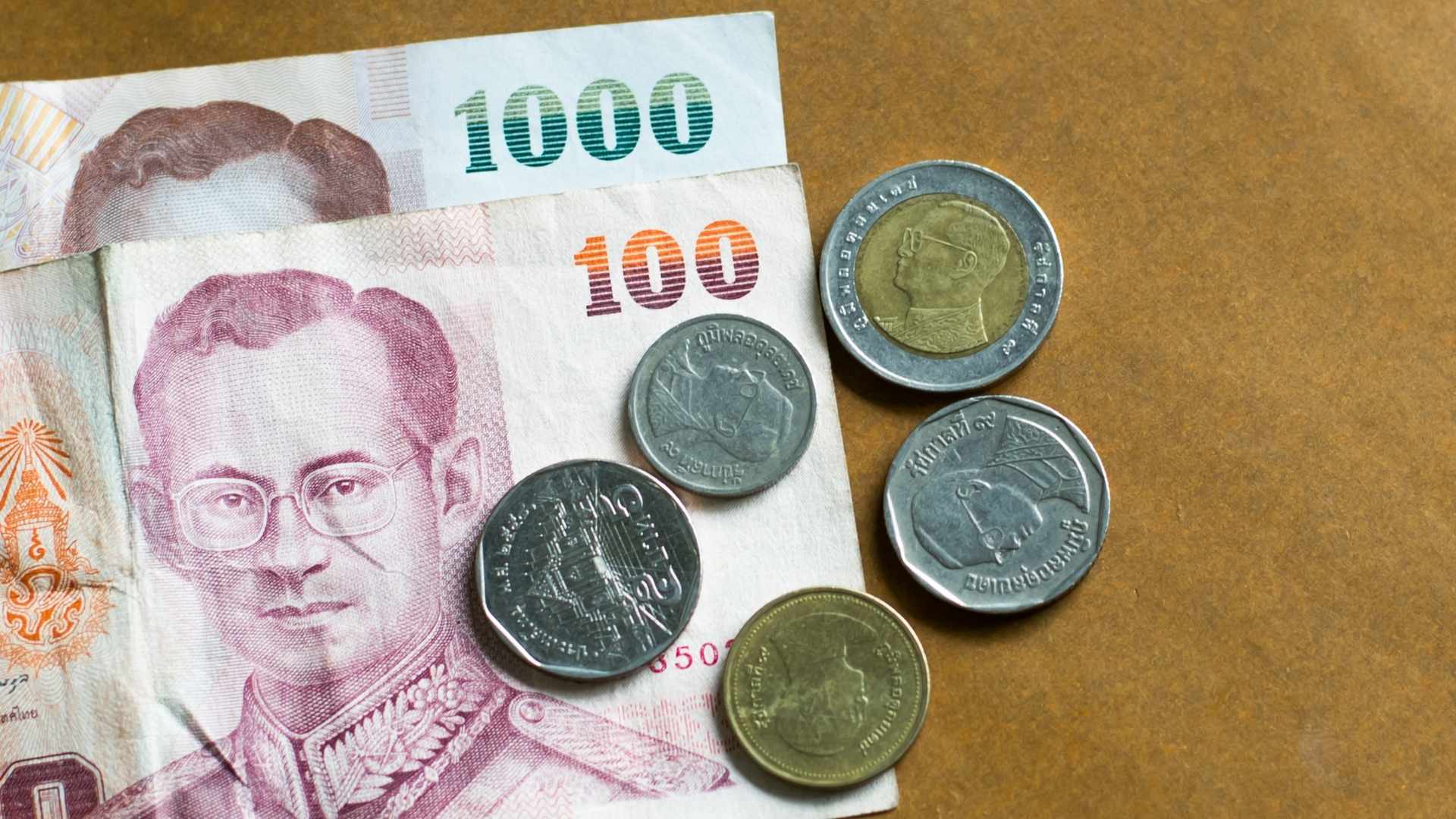
How much do you need for your Thailand trip? The total cost of a 10 to 15-day trip to Thailand depends on factors like accommodation, transportation, food, and activities. On average, travelers should budget between $2000 and $3800 for a comfortable experience.
Budget travelers can expect to spend around $2200 - $2500, staying in budget hotels, using public transportation, and enjoying street food.
Mid-range travelers should plan for $2700 - $3000, which covers boutique hotels, a mix of local and international dining, and guided excursions.
Luxury travelers may spend $4000 or more, opting for high-end resorts, private tours, and fine dining experiences.
Managing expenses wisely can help travelers stay within budget. ATMs are widely available, but withdrawal fees apply, so using exchange booths often provides better rates. While credit cards are accepted in most hotels and larger establishments, cash remains the preferred payment method in markets and small restaurants. Tipping is not mandatory, but small gratuities for good service are appreciated, especially in restaurants and by hotel staff.
For more details:Local customs and cultural etiquette
Understanding local customs helps create a more respectful and enjoyable travel experience. Visitors should remove their shoes before entering temples and some homes and dress modestly when visiting religious sites. A common way to greet locals is with a ‘wai,’ a slight bow with palms together. Additionally, touching people’s heads or pointing feet at others should be avoided, as these actions may be considered disrespectful.
Planning the perfect Thailand itinerary requires careful consideration of the best time to visit, top destinations, transportation options, and essential travel tips. With so much to explore, from bustling cities to historic sites and scenic landscapes, having a well-structured plan ensures a smooth and enjoyable trip.
Let Hanoi Voyages design a personalized Thailand itinerary that suits your preferences. Contact us today to start planning your journey!
Dream about your trip to Asia, in private
We are here to make it happen with youFREE QUOTE, WITHOUT OBLIGATION







